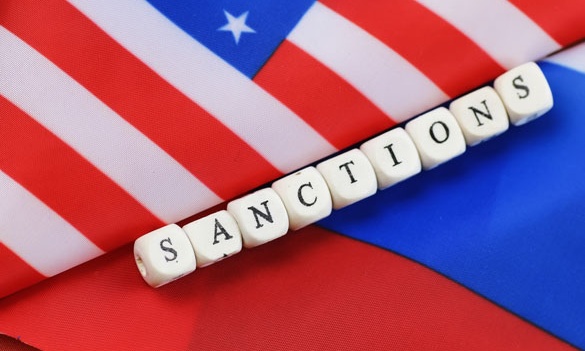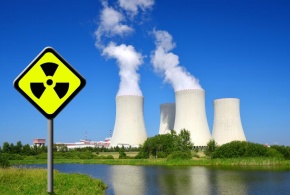
Senators representing both the Republican and Democratic parties of the United States, unveiled a bill providing for the strengthening of economic sanctions.
The bill under the acronym DASKA (Defending American Security from Kremlin Aggression Act) proposes to establish a state center for coordination of activities aimed at protection of cyberspace, and the center for coordination of sanctions. The DASKA bill will hit the energy sector of Russia, it is more specifically directed against the environment of the President of the Russian Federation.
Will the bill be supported by the US Congress and signed by the President?
- The influence of the imposition of sanctions on the Kazakhstan economy?
- Will the exchange rate of tenge fall after the Russian in the case of US sanctions against Russia?
It should be borne in mind that economic experts and high-level financial analysts should be familiar with foreign policy, because the economy and financial systems of states and even state associations are regulated by the strong participation of financial institutions and state systems.
U.S. Senator Lindsey Graham - is an American Republican politician. From 1995 to 2003, he was a member of the U.S. House of Representatives from the 3rd constituency of South Carolina. Senior U.S. Senator from South Carolina since 2003, close friend of the late senator John MacCain - draftsman of DASKA, is not an economist or financier. His bill is a typically political, and this policy directed against Russia, probably is not progressive even in US. Robert Menendez also belongs to this circle of politicians. Will it be beneficial to impose sanctions against businesses in America itself. Probably it is not for everyone. In view of this, the approval of the US Congress and the introduction of sanctions of the bill will be problematic. It is likely that economists and politicians who support progressive trends or economic rationality will not support it.
The effect of only the introduction of this bill is the following:
- Intimidation and influence on the economy of the Russian Federation and its allied States, management, mass consciousness, financial market, foreign exchange market, stock market, exchange rates, at the time of issue of the bill.
- Intimidation and influence in the case of approval by Congress.
- Deterrence and influence, in the case of the approval by the President of the United States.
At each stage there is a negative impact on the world economy, the economy of Russia and Kazakhstan, the mass consciousness, and the management. As a result, due to the general inexpediency and the likely response, even if approved, the implementation of this bill is likely to be only partially implemented. The expert opinion of the majority of Russian experts in economics and finance is about the same. The only thing is that they do not affect the political and related processes in the EEU.
In the case of sanctions impact on the Russian economy, the consequences will be disastrous for both the currency and the stock market.
Kazakhstan.
The impact on Kazakhstan, of course, should be expected due to the connectivity of the economies, some parity in the ruble and tenge, but the reaction of the economy is probably difficult to predict. The sector related to the energy and financial sectors of the Russian Federation will experience difficulties. It's hard to pinpoint. Difficulties will be if "secondary sanctions measures are prescribed for those non-us companies that decide to support commercial activities with restricted partners from Russia."
As a result, even the impact on the Russian economy is difficult to calculate due to the fact that this ideological bill has not yet reached the implementation stage.
Elites.
There is another sphere of analytical forecasts on this topic-the impact on the russian elite. European experts and analysts of institutions and analytical centers focus on this. Just like Graham himself.
Russia's political and economic elites are closely linked to European and American elites. The struggle of elites in the international arena and in the economy must be taken into account.
It is not surprising Russia is currently not a communist country and finance capital can be concentrated in private ownership to maximum values. Apparently this is the "point of bifurcation", Russia have to understand that it is no longer communist and solve its problems, or individualize the economy and policy. In any case, something new is coming.
Factors - in these conditions, a group of businessmen can be formed, who benefit from the introduction of sanctions. Not taking advantage would be wrong. In fact, the state should take similar measures in problem areas.
Kazakhstan.
Speaking about Kazakhstan's economy and its losses, it is necessary to understand that everyone will have losses and countermeasures – Russia, USA, EU. EU is the number one trading partner with Russia.
It should be remembered that sanctions are imposed by the US, for example against European companies too. This is a unpleasant practice of the United States in the present time.
Sanctions against Iran, for example, have caused European countries to disagree with these US decisions and led to the formation of a group of EU countries that continue to trade and work with Iran.
In the case of Kazakhstan, there is no confrontation with the US and therefore there should be no direct impact on the Kazakh economy. Those who are directly involved in working with Russian companies that have fallen under sanctions may suffer losses.
However, Kazakhstan's economy is not entirely tied to Russia. There is a large amount of joint ventures with the European Union, that is, with European countries. At the same time there are enterprises associated with the American economy.
Thus, it is necessary to develop the Commonwealth with Russia and Cooperation with the United States.
Historical retrospective.
The struggle of the US, EU, Russia and China is a contradiction, resembling the neo-imperialist type sum of contradictions between the new powerful states seeking to increase their acquisitions in the political (ideological, elite, military) and in the economic spheres of Russia and China and the old – US and EU. It is also competition for markets, business competition, for the european gas market. The struggle for the redivision of markets between the US, EU, Russia, China.
In a straight open confrontation between the economies, Russia and China may lose. The variant Russia and China win the fight - has the following factors - the economies and financial systems of these countries are superior to western and integrated into them, the standard of living is high, the armed forces are higher, the level of science, education and state institutions are higher, technologies have the high level.
Probably worries about the seriousness of the consequences of sanctions, against Russia and the development the Kazakh economy are excessive. With all the worries about the exchange rate and stability of the ruble, its rate is basically stable. Economic reserves and opportunities of the Russian economy allow to maintain stability and this situation is likely to last long enough. Even if you take Iran, Europe has not allowed the US to close all economic channels of interaction. If we talk about Russia, we can characterize this situation as a positional economic confrontation with small fluctuations at the present time.



















 Сот белсенді Ермек Нарымбайдың мерзімінен ерте босап шығу туралы өтінішін орындамады
Сот белсенді Ермек Нарымбайдың мерзімінен ерте босап шығу туралы өтінішін орындамады
 Poverty and misery of …. “terrorists”
Poverty and misery of …. “terrorists”
 SCIENTISTS OF THE KAZNU ARE INVESTIGATING THE PROBLEM OF SURVIVAL OF MICROORGANISMS IN EXTREME CONDITIONS
SCIENTISTS OF THE KAZNU ARE INVESTIGATING THE PROBLEM OF SURVIVAL OF MICROORGANISMS IN EXTREME CONDITIONS
 "Atomic" exam for officials of Kazakhstan
"Atomic" exam for officials of Kazakhstan
 Faculty of Journalism of the Al-Farabi Kazakh National University held an annual scientific and practical conference «Bekhozhinov readings»
Faculty of Journalism of the Al-Farabi Kazakh National University held an annual scientific and practical conference «Bekhozhinov readings»
 Kazakhstan signed an agreement with Russia on the allocation of vaccine against coronavirus
Kazakhstan signed an agreement with Russia on the allocation of vaccine against coronavirus